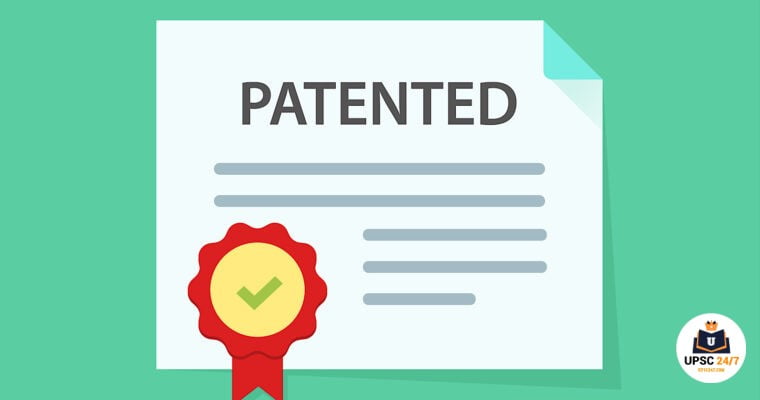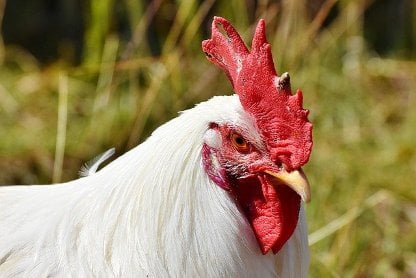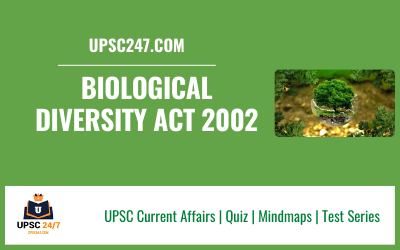Patents UPSC | Criteria | Patent Amendment Rule 2020 UPSC – Indian Patent Law is defined by various provisions of the Patents Act, 1970. Under this law, patent rights are granted for inventions covering a new and inventive process, product or an article of manufacture that are able to satisfy the patent eligibility requirements of having novelty, inventive steps, and are capable of industrial application. Researchers at the Indian Institute of Technology-Madras (IIT-M) have filed 184 patents during the year 2020, including 65 international ones.
So Fo Full Understanding About Patents And Its Laws In india Read This Full Post . Patents UPSC | Criteria | Patent Amendment Rule 2020 UPSC

Patents Act in India History And All Points – Overview | Patents UPSC
A patent is an exclusive right granted for an invention, which is a product or a process that provides, in general, a new way of doing something, or offers a new technical solution to a problem. To get a patent, technical information about the invention must be disclosed to the public in a patent application.
- A patent is an intellectual property right.
- A patent is an exclusive right granted for an invention, which is a new product or process that meets conditions of novelty, non-obviousness, & industrial use.
- A patent provides the owner with the right to decide how – or whether – the invention can be used by others.
Covid Vaccine List UPSC | Corona Vaccines Development In India UPSC
History Of Patent Law In India | Patents UPSC
- The history of Patent law in India starts from 1911 when the Indian Patents and Designs Act, 1911 was enacted.
- The Patents Act, 1970 is the legislation that till date governs patents in India. It first came into force in 1972.
- The Office of the Controller General of Patents, Designs and Trade Marks or CGPDTM is the body responsible for the Indian Patent Act.
- The Patent Office has its headquarters in Calcutta and has branches in New Delhi, Chennai and Mumbai.
- The office of the CGPDTM is based in Mumbai.
- Nagpur hosts the office of the Patent Information System and also the National Institute for Intellectual Property Management.
- The Controller General supervises the Act’s administration and also offers advice to the government on related matters.
- The Patents Act has been repeatedly amended in 1999, 2002, 2005, 2006 respectively.
- These amendments were required to make the Patents Act TRIPS compliant. TRIPS stands for Trade-Related Aspects of Intellectual Property Rights.
Criteria for Issuing Patents in India
- Novelty: it should be new (not published earlier + no prior Public Knowledge/ Public Use in India)
- Non obviousness: It must involve an inventive step (technical advanced in comparison to existing knowledge + non‐obvious to a person skilled in the relevant field of technology)
- Industrial use: It should be capable of Industrial application
Patents in India are governed by “The patent Act 1970” which was amended in 2005 to make it compliant with TRIPS.
What cannot be patented?
- Frivolous Invention: Invention that harms public order/Morality/ health of animals, plants & humans
- Methods of agriculture or horticulture
- Traditional Knowledge
- Computer Program
- Inventions related to Atomic Energy
- Plants & Animals
- Mere discovery of scientific principle
Patent (Amendment) Rules, 2020
- The central government has published an amended Patent (Amendment) Rules, 2020.
- The new rules have amended the format of a disclosure statement that patentees & licensees are required to annually submit to the Patent Office.
- The format contains disclosing the extent to which they have commercially worked or made the patented inventions available to the public in the country.
- The disclosure is to be made in the Form 27 format as prescribed under the Patent Rules, 2003.
- The Patentee’s & licensees as well as the Patent Office have blatantly disregarded this statutory requirement.
- There has been significant pressure from MNC & the U.S. to do away with this requirement.
Patents UPSC Topic Based Questions And Answers
1. Patent application can be filed in India by
- True and First Inventor
- Assignee of the inventor
- Legal representative of the inventor
- All the above
2. Patent application contains
- Form-1
- Form-2
- Both (a) and (b)
- None
3. Complete Specification contains
- Title of invention
- Description of invention
- Claim
- All the above








